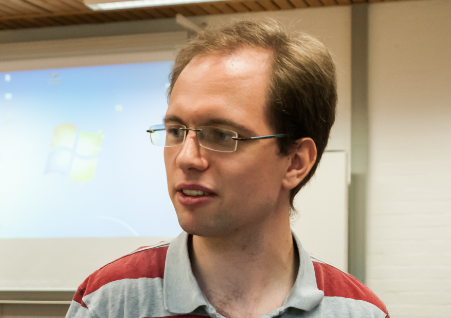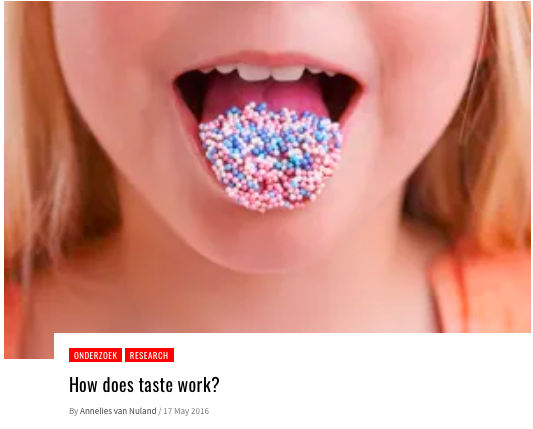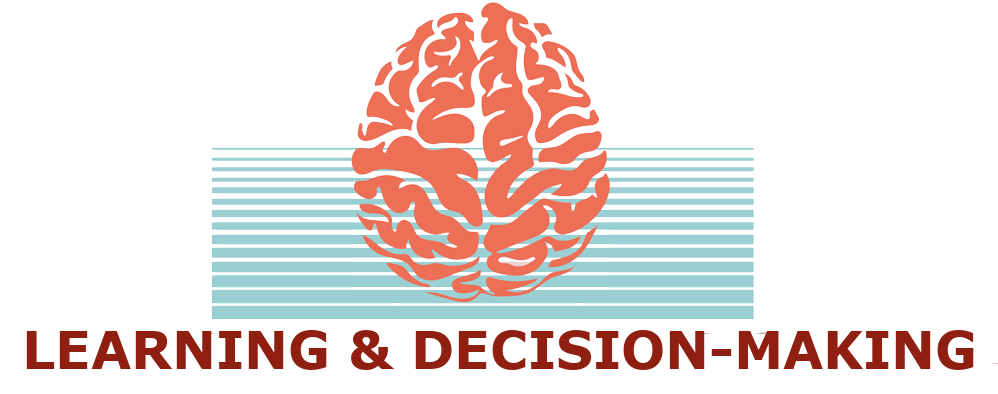Lab News

New paper by Jennifer Swart in PLOS Biology
Our study titled “Frontal network dynamics reflect neurocomputational mechanisms for reducing maladaptive biases in motivated action” is now published online in the PLOS Biology journal. In this study, we investigated the neurocomputational mechanisms underlying overcoming maladaptive motivational influences through frontal cognitive control. We found that midfrontal theta-band activity covaried with the level of Pavlovian conflict and was associated with reduced Pavlovian biases rather than reduced instrumental learning biases. Motor and lateral prefrontal regions synchronized to the midfrontal cortex, and these network dynamics predicted the reduction of Pavlovian biases over and above local, midfrontal theta activity. The paper is open access and can be downloaded here.

New paper in the Journal of Cognitive Neuroscience
Our study titled “Pavlovian Control of Escape and Avoidance ” is now published online in the Journal of Cognitive Neuroscience. In this study, we aimed at establishing a behavioral and computational framework to examine aversive Pavlovian responses (activation vs. inhibition) depending on the proximity of an aversive state (escape vs. avoidance). The results for choice and reaction times suggest that escape is associated with a bias for vigorous action, whereas avoidance is associated with behavioral inhibition. The paper can be found here.

Hanneke awarded Radboud Science Award
Hanneke has been awarded one of the three Radboud Science Awards for the year 2018. Congrats Hanneke!

Mojtaba joins the lab!
Mojtaba Rostami Kandroodi has joined the lab as a visiting PhD student! He will work with Hanneke on modelling individual differences in reversal learning. For more information, check out his personal page.
![Donders Wonders: Een wetenschapper voor de klas [NL]](https://images.squarespace-cdn.com/content/v1/6016b7574179414b86526a5c/1637494906461-NF4ZQT959MUNLFLPWORF/Screen+Shot+2021-11-21+at+12.38.07.png)
Donders Wonders: Een wetenschapper voor de klas [NL]
In this blogpost [NL], Annelies van Nuland writes about the Brain Awareness week in which neuroscientists from the Donders Institute visit middle schools all across the Netherlands.

Vanessa joins the lab!
Vanessa Scholz has joined the lab as a postdoctoral guest researcher! She will carrying out a large online study on motivational biases and how they relate to distinct transdiagnostic psychiatric symptom dimensions.

Donders Wonders: Could coffee harm or help you?
Annelies van Nuland has previously written a blogpost about how your morning coffee helps to wake you up, but how much coffee is too much?

Johannes joins the lab!
We are very excited to be joined by Johannes Algermissen, starting his PhD with us on how we (mal)adaptively employ different decision strategies. For more information, check out his personal page!

Hanneke awarded 5-yr Vidi Grant by NWO
Very proud to announce that Hanneke was awarded €800.000 for an NWO Vidi project to study adaptive decision-making under changing environmental constraints. Have a look below for a Dutch and English summary!

Donders Wonders: Could you go without your daily dose of caffeine?
Check out this blogpost on Donders Wonders by Annelies van Nuland to find out how your morning coffee helps to wake you up.


New paper by Jennifer Swart in eLife
Our study titled “Catecholaminergic challenge uncovers distinct Pavlovian and instrumental mechanisms of motivated (in)action” is now published online in eLife. In this study, we examined whether motivational biases may also arise from asymmetrical instrumental learning of active and passive responses following reward and punishment outcomes. The results indicate that reward and punishment cues promoted generalized (in)action in a Pavlovian manner, whereas outcomes enhanced instrumental (un)learning of chosen actions. These cue- and outcome-based biases were altered independently by the catecholamine enhancer melthylphenidate. Our study uncovers two distinct mechanisms by which motivation impacts behaviour, and helps refine current models of catecholaminergic modulation of motivated action. The paper is open access and can be downloaded here.

Donders Wonders: The road to Parkinson’s
The chances of you knowing someone with Parkinson’s are constantly growing. We’re getting older, and not without its setbacks. So how does this disease work, and what do we know? To learn more, check out Annelies van Nulands blogpost.


Donders Wonders: How to survive the Winter Blues
Check out this blogpost on Donders Wonders by Annelies van Nuland to find out how to make it through the cold and dark Winter months!


Donders Wonders: How does taste work?
Our tongues are able to perceive salty, umami, bitter, sour and sweet tastes. But how does our tongue detect the different flavours? For the answer, check our Annelies van Nulands new blogpost.

Donders Wonders: What does my brain look like?
We see a lot of brains in the MRI here at the Donders Institute, and in some ways they all look incredibly alike. A brain is a brain. But at the same time, every brain is entirely different from all of the others. To learn more about these individual differences, check out Annelies van Nulands blogpost here [EN] or here [NL]
![Donders Wonders: Hete pepers [NL]](https://images.squarespace-cdn.com/content/v1/6016b7574179414b86526a5c/1637493790415-ZPBG6Y3NJYAK9LFL8Z9H/Screen+Shot+2021-11-21+at+12.22.27.png)
Donders Wonders: Hete pepers [NL]
Hot as in spicy or hot as in burning? Tasting a spicy curry or taking a bite out of a hot pizza that is straight out of the oven might be more similar than you think. If you want to learn more, check out this blogpost by Annelies van Nuland.
